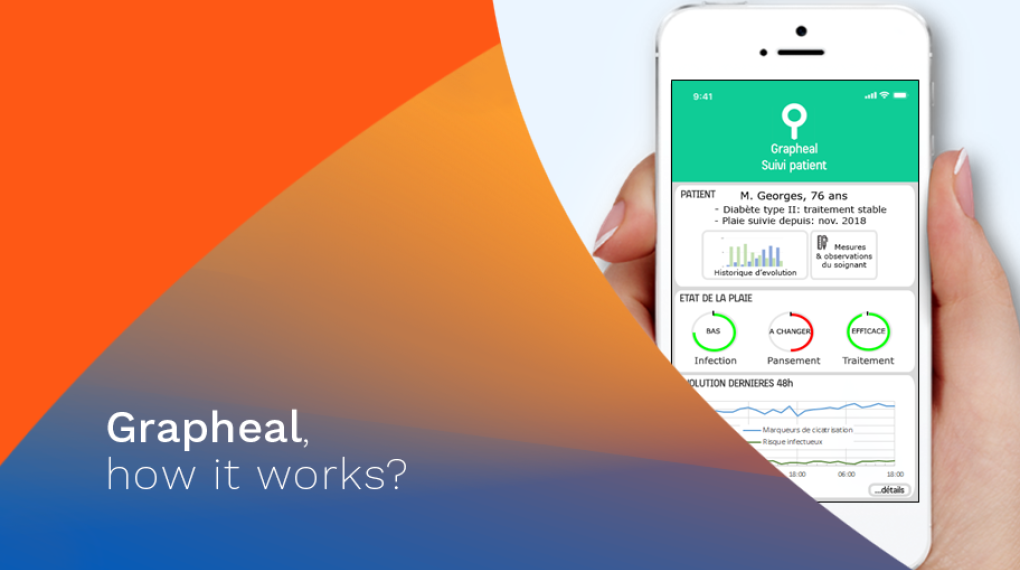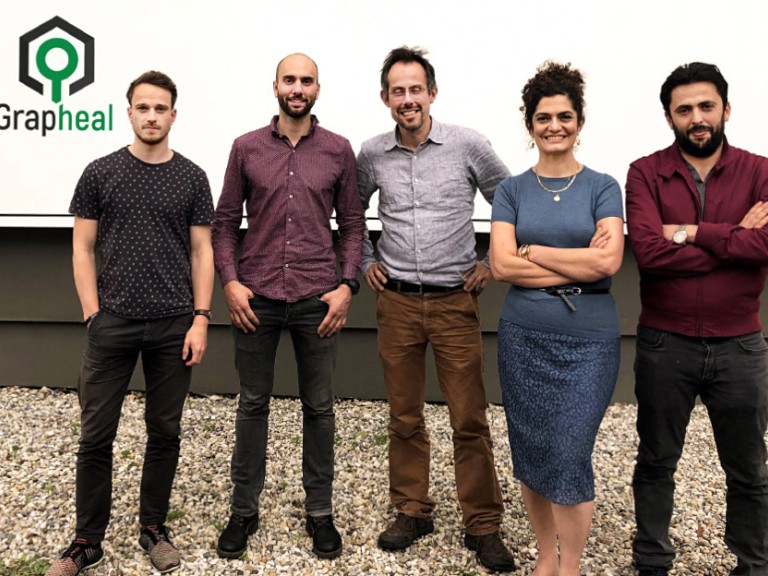-
FRANCE
Country of origin
-
2019
Creation date
-
4
Employees
-
€380 k
Fund raised
Given the fact that chronic wounds affect two million people in France, and that treatment options are often costly and ill-suited to the patient, it is clear that more appropriate solutions need to be found. That’s what we’ve set out to do with Grapheal - Advanced Wound Care. Its goal? To optimise the treatment of these chronic wounds using next-generation bandages.
Using the properties of graphene, which its members have studied for years, the Grenoble-based startup Grapheal has developed a new smart material, classified as non-toxic by a certified body. When embedded into bandages, it helps chronic wounds heal more quickly using electrostimulation. And the solution doesn’t stop there: it also allows you to remotely monitor the condition of a wound using biosensors. With the rise of telemedicine, these smart bandages will allow patients to receive at-home care and improve their quality of life.
After more than ten years of research at the French National Centre for Scientific Research (French: Centre national de la recherche scientifique, CNRS), the Grapheal founders selected the pharmaceutical market. First conceived for chronic wounds, Grapheal’s applications could be endless. The Jury of the 2019 EDF Pulse start-up Awards recognised the strength and potentials of the team by awarding them 3rd place on the podium.

Your browser does not support javascript.
To enable you to access the information, we suggest you view the video in a new tab.

The Team
The Grapheal – Advanced Wound Care project is led by Vincent Bouchiat, the CEO of Grapheal and an expert in nanomaterials, project management and electronics. He is joined by Behnaz Djoharian, a software engineer and expert in the Internet of Things (IoT); and R. Othmen, a nanomaterials specialist.
4 questions to Grapheal
Where did you get the idea for this startup?

After years of research on a new material—graphene—we discovered that it had a biostimulating effect, and could be used to accurately detect biological phenomena over t...
Any recent good news?

In late June, we received the InnoTrophée award from the Grenoble Chamber of Commerce, with the support of the entire startup ecosystem in Grenoble.
What is the most unexpected thing that your startup has made you do?

It has kept us constantly alert, with our brains churning day and night, weekends and weekdays...but most unexpectedly, it has made us love it all!
In what way does your project revolutionise your category?

The rise of telemedicine has made at-home care possible. A smart bandage is the missing link that could enable patients with chronic wounds to return home more quickly,...
